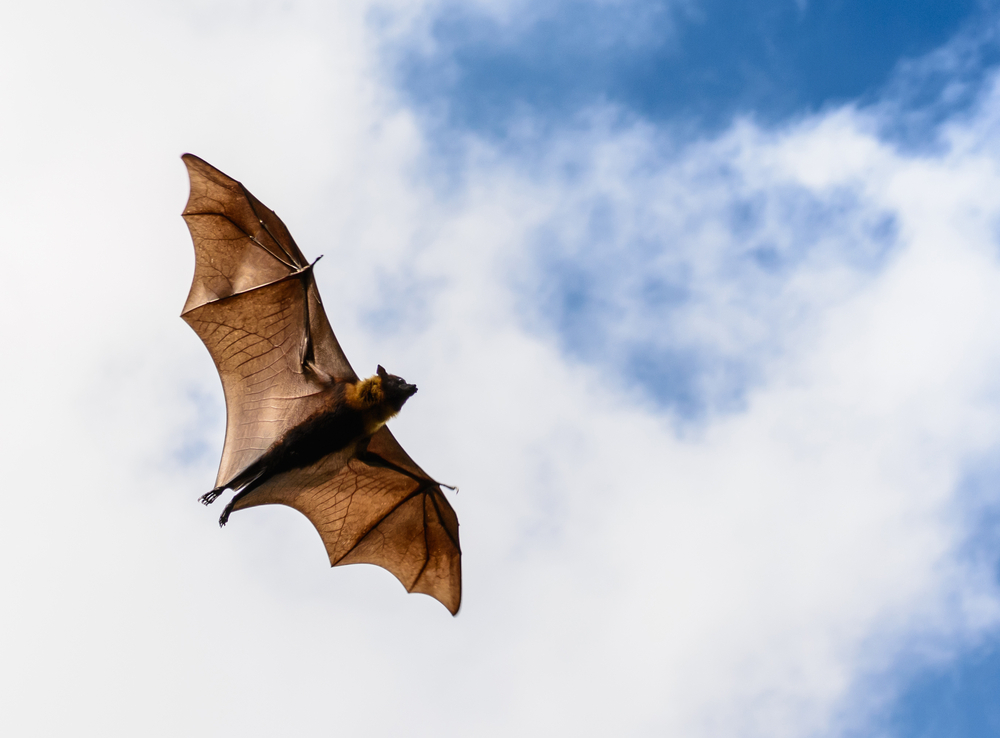
A popular tourist destination town in New South Wales, Australia, has been declared a disaster zone after being descended upon by an immense colony of megabats. The fruit bats, which have bodies about the size of a small dog and an average wingspan of one metre, are commonly known as flying foxes because of the ruddy reddish colouring of their neck collar and slightly vulpine facial features.
Flying foxes disperse fruit seeds and pollinate trees, performing a crucial role in Australia’s ecosystem, but the population has seriously declined in recent years because of various threats—including susceptibility to extreme weather events, habitat loss and conflict with humans—and they are now a protected species.
This drop in numbers night not seem apparent to residents of Batemans Bay, however, who are now unhappily sharing their coastal town with an estimated 100,000 of the cacophonous animals, who take to the air every evening for an orgy of fruit munching, and then deposit the results all over locals’ cars and houses.

The colony began establishing itself a couple of years ago, and has now grown to an enormous size. Besides creating a massive malodorous mess on a daily basis, the bats are being blamed for regular power outages, caused when they alight on live electricity cables and get frazzled, which can affect local hospitals. The deluge of droppings is driving both visitor numbers and house prices down, and the problem has been spreading along the whole coast, into the Eurobodalla region.
‘I think it’s a natural disaster,’ local MP Andrew Constance told the Independent. ‘It’s a disaster for residents, it’s a disaster for the flora and fauna.’

Sounds like Batemans Bay needs a batman, and fortunately that’s exactly what they’ve got in the shape of Russell Schneider, of the Flying Fox Task Force, a hero in the wings and the holder of an Order of Australia medal. Although Russell is the first to concede that he has a huge job on his hands with this case. ‘This is the biggest, this is unprecedented,’ he told media. ‘They’ve never been seen in these numbers.’
He is, however, ready to wade in. ‘Failure is not an option, and time is of the essence,’ Russell recently said. ‘People want to know when substantial action will begin and we need to avoid a situation where members of the community take action into their own hands.’
Because of their protected status the bats can not be culled, but they can be encouraged to move along by the use of noise and smoke. The operation will be monitored by Australia’s Office of Environment and Heritage, which has a responsibility to safeguard the animals.
